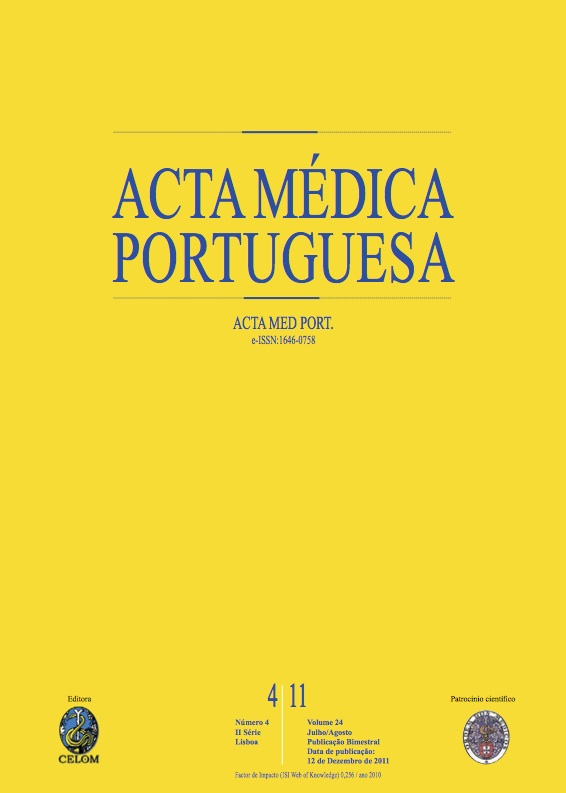Forensic telepsychiatry in Portugal: a few reflections.
DOI:
https://doi.org/10.20344/amp.482Abstract
Forensic Telepsychiatry has had growing usage in countries such as the USA and England in the last decade, due to ongoing development of technologies which allow a better access to mental health care in needed populations, and improve the outcome of technicians' work, while facing a more demanding performance of Mental Health facilities. In this article we make a revision of literature concerning applications of Forensic Telepsychiatry, analyzing its potencialities and limits in Portugal. The literature shows positive evidence about efficiency, cost and acceptance, to both patients and doctors. On the other hand, several authors rise issues related to technical, ethical and legal aspects, such as restrictions to its application in forensics; privacy, confidentiality, safety, consent, diagnostic skills and professional responsibility. Forensic Telepsychiatry has shown special utility in remote rural populations with poor access to mental health care, victims of domestic violence, victims of sexual abuse, minor inpatients in correctional facilities and convicts in prisons. It may improve exchange of information with courts and penitentiaries, and production of evidence through quick and efficacious auditing. It has also been used in court to communicate forensic reports concerning mental health patients, to clarify issues related to psychiatric evaluations and testify in criminal and civil courts. Besides the literature revision, three areas of applicability for Forensic Telepsychiatry in Portugal are discussed in this article: teleconference for experts - psychiatrists and psychologists - testifying in court sessions; psychiatric and psychological evaluations through teleconference; expert auditions through a hotline, designed to provide specialized support to courts - both for urgent guidance and clarification. The reflections and proposals included in this article aim to make way to empirical studies which could evaluate the applicability of a more widespread usage of Forensic Telepsychiatry in Portugal in the near future.Downloads
Downloads
How to Cite
Issue
Section
License
All the articles published in the AMP are open access and comply with the requirements of funding agencies or academic institutions. The AMP is governed by the terms of the Creative Commons ‘Attribution – Non-Commercial Use - (CC-BY-NC)’ license, regarding the use by third parties.
It is the author’s responsibility to obtain approval for the reproduction of figures, tables, etc. from other publications.
Upon acceptance of an article for publication, the authors will be asked to complete the ICMJE “Copyright Liability and Copyright Sharing Statement “(http://www.actamedicaportuguesa.com/info/AMP-NormasPublicacao.pdf) and the “Declaration of Potential Conflicts of Interest” (http:// www.icmje.org/conflicts-of-interest). An e-mail will be sent to the corresponding author to acknowledge receipt of the manuscript.
After publication, the authors are authorised to make their articles available in repositories of their institutions of origin, as long as they always mention where they were published and according to the Creative Commons license.









